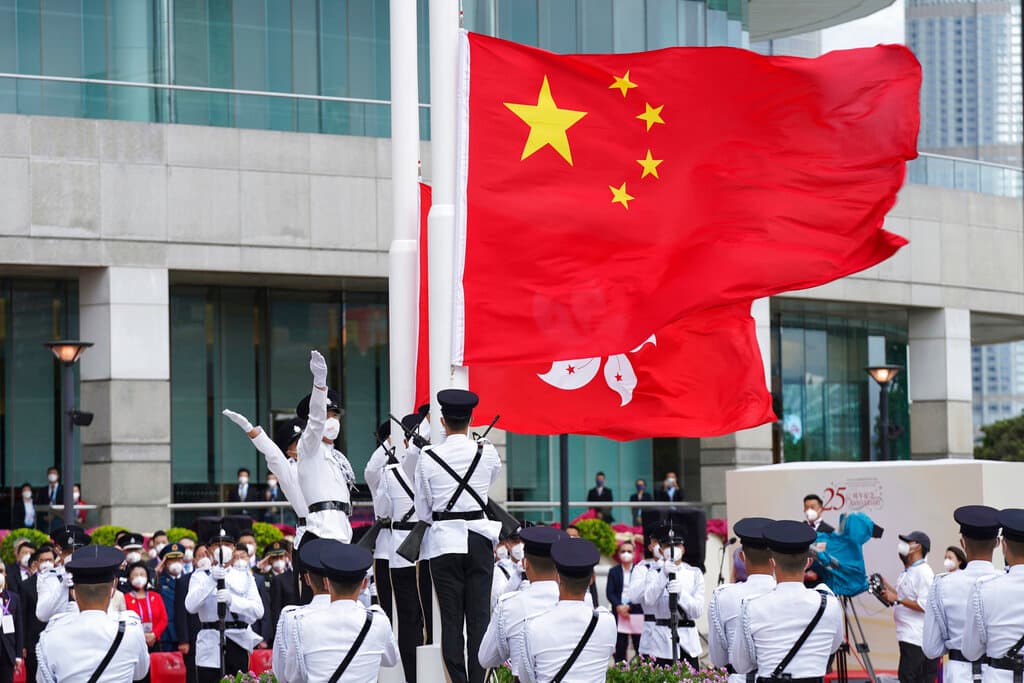Chinese Dominance of Pharma Emerging as Major Danger to America
It’s time to bring the manufacturing of key drugs back to America’s shores.

One growing threat to American national security has largely gone under the radar — the American military’s reliance on pharmaceuticals manufactured by Communist China. America has offshored the manufacturing of key industries to China and elsewhere. Pharma, though, is seldom considered to be part of the nation’s defense industrial base.
Today, though, there is, if belatedly, a growing awareness of the dangers of offshoring defense-related industries and products. The Covid pandemic and resultant supply chain crisis laid bare America’s reliance on China and other overseas manufacturers. Infamously, the U.S. couldn’t even adequately field personal protective equipment.
The crisis illustrated that America needs a more expansive definition of national security. Drugs need to be at the top of the list. A study, issued in 2019 by the U.S. China Economic and Security Review Commission, found that American consumers are “increasingly reliant” on drugs sourced by a country that “presents economic and national security risks” to the United States.
Even when pharmaceuticals aren’t entirely manufactured in China, the materials required to make them are still sourced from the Middle Kingdom. China is the largest producer of active pharmaceutical ingredients, which are essential to the manufacturing of medicine. The USCC noted that China is now the second largest pharmaceutical market in the world by revenue.
Low production costs, a large consumer base, and breadth of expertise have enabled Beijing to supplant America. China’s dominance is even greater as other manufacturing countries, such as India, are themselves reliant on Chinese-sourced active pharmaceutical ingredients. Some 80 percent of key ingredients for India’s generic drug manufacturing come from China.
China’s near monopoly on pharmaceuticals gives Beijing the ability to bring America to its knees, providing the ruling Chinese Communist Party with tremendous leverage. Time and again, the CCP has shown itself willing to wield its manufacturing capabilities to threaten countries as far removed from Communist China as Lithuania.
As one expert on Sino-American rivalry, Aaron Friedberg, a former U.S. deputy national security adviser, observed, the Chinese Communist party has “always regarded economic policy as a tool for enhancing China’s power” over the United States and its allies. The CCP has already threatened to use its pharmaceutical manufacturing power.
The Council on Foreign Relations observed back in 2019 that Chinese officials darkly suggested that “Beijing curb its exports of raw materials for vitamins and antibiotics as a countermeasure in the trade war with the United States.” That very prospect was enough to give some American policymakers pause, as CFR’s Yanzhong Huang noted.
Although the U.S. continues to hold an edge in the engineering of new drugs, China’s dominance of the supply chain for generic medicine is particularly problematic. A senior advisor at the Hastings Center, Rosemary Gibson, author of the book on this crisis called “China Rx,” has pointed out that America “can’t even make penicillin anymore.”
The United States, she warns, is almost entirely “dependent” on Beijing for the manufacturing of penicillin and other antibiotics to combat superbugs. Were China to “shut the door on exports, within months hospitals would cease to function.” This danger applies to the American public writ large, but our military itself wouldn’t be immune.
Policymakers need to plan accordingly. Historically, war brings not only death and destruction, but also disease. From the Napoleonic Wars to America’s Civil War, history is littered with conflicts in which diseases — many now curable with modern medicine — killed more combatants than artillery, bombs, or bullets.
A lack of access to modern medicine could severely hamper military readiness. It isn’t difficult to think of disturbing scenarios. How would our Armed Forces fare in a theater where malaria is common, without the medicine to combat the disease? Without access to basic pharmaceuticals, ships, squadrons, and companies could watch their combat effectiveness deteriorate overnight.
Although our defense department purchases only small quantities of pharmaceuticals from China, according to CFR’s Mr. Huang, as much as 80 percent of active pharmaceutical ingredients come from Beijing. That’s more than enough for a suffocating blow. It behooves our policymakers to broaden their definition of what constitutes national security and defense infrastructure.America urgently needs not only to diversify its key supply chains, but it should also prioritize reshoring essential industries. The United States could work with trusted allies like India and others to ensure that vital supply chains are safe from disruptions, intentional and otherwise. In national security, as in medicine, an ounce of prevention is worth a pound of cure.

